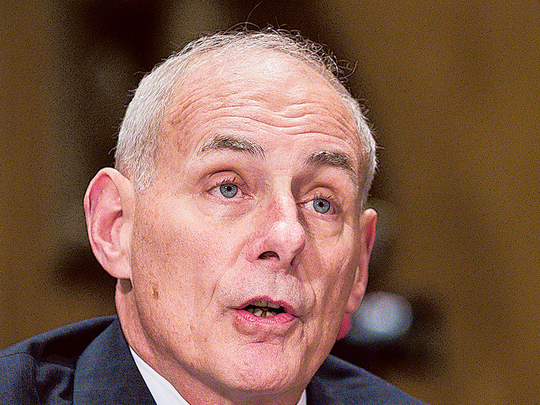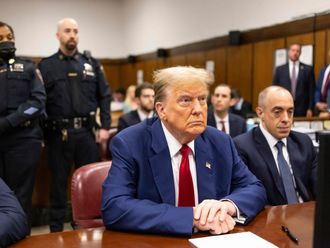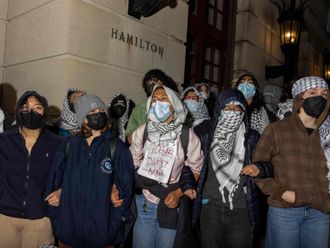
Washington: Gen. John F. Kelly, President-elect Donald Trump’s choice to lead the Department of Homeland Security, easily manoeuvred through his confirmation hearing before the Senate Homeland Security Committee on Tuesday, drawing bipartisan support for what is likely be a smooth approval process by the full Senate.
Still, despite the welcoming nature of the hearing, the senators pressed Kelly, a retired Marine Corps four-star general, for his views on many of Trump’s statements about immigration and border security, and Kelly offered opinions differing from those expressed by the president-elect.
Sen. John McCain, R-Ariz., asked Kelly about Trump’s much-debated calls to build a wall along the border with Mexico, questioning whether a barrier alone would be sufficient to stop the flow of immigrants and drugs.
“A physical barrier in and of itself will not do the job,” Kelly said.
Kelly made it clear that the United States would have to deal with factors in South and Central America that fuel northward migration — especially drugs and related violence — and that the nation should look to bolster law enforcement in those countries. He also expressed a notable degree of empathy for those who seek refuge in the United States.
“They, for the most part, don’t want to come up and leave their homes, their families,” Kelly said. “But there isn’t an awful lot of economic opportunity for them there.”
Kelly was also questioned about Trump’s suggestion that he might revive a dormant registry programme for visitors from countries with active terrorist groups — a programme critics say unfairly targets Muslims.
Kris W. Kobach, the Kansas secretary of state and a member of Trump’s transition team, was photographed in November with a document of first-year proposals that included, under the rubric “Bar the Entry of Potential Terrorists,” a proposal to reintroduce the registry programme.
Sen. Gary Peters, D-Michigan, asked Kelly if he supported the plan.
“I don’t agree with registering people based on ethnicity or religion,” Kelly replied.
Sen. Rand Paul, R-Kentucky, a long-time critic of government surveillance programmes, asked Kelly if he supported the bulk collection of data on Americans.
“I’m not for the mass collection of data,” Kelly said. “I go the other way.”
Lawmakers did not broach the subject of Trump’s proposal to deport millions of unauthorised immigrants once he takes office, although Sen. Kamala Harris of California, a newly elected Democrat and a former state attorney general, asked about the fate of unauthorised immigrants who were brought to the United States as children. Kelly said he would enforce the law.
If confirmed, Kelly will become the fifth person and the first former military officer to lead the Department of Homeland Security, which is responsible for protecting the country from terrorist attacks and managing the nation’s response to disasters.
Kelly was introduced to the homeland security panel by Robert M. Gates, a secretary of defence under President Barack Obama and George W. Bush, and by McCain.
Gates, who was Kelly’s boss during a tour at the Pentagon, called him a “straight-talking, candid, courageous leader who will say exactly what he thinks.” Gates described him as a reliable, competent leader, capable of managing a complex, multipart operation.
“To put it quite simply, he is one of the finest people I have ever known,” Gates said. “I would trust him with my life.”
As Sen. Ron Johnson, R-Wisconsin, chairman of the Homeland Security Committee, opened the confirmation hearing, he called Kelly the most qualified person to lead the department. Sen. Claire McCaskill of Missouri, the top Democrat on the panel, also praised the general and later wrote on Twitter that he was a “good choice.”












